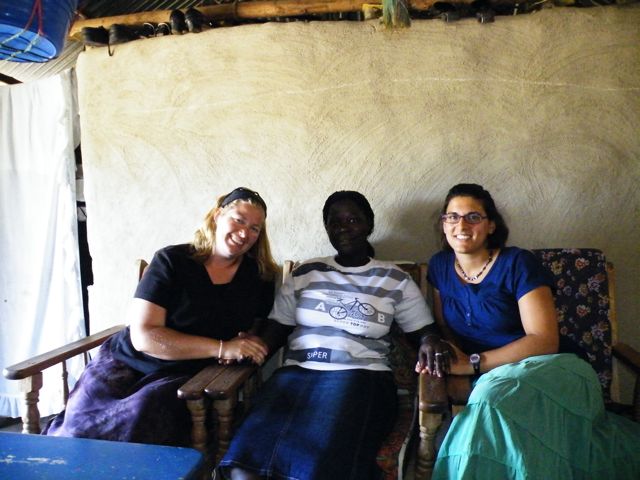85 Percent.
This is what we’ve been told is the rate of HIV+ people in this region
in Kenya. Can you imagine? For every six people you meet, only one
is not living with a death sentence.
We are in the Suba District, in a village called Mbita, on the shore of
Lake Victoria. We’ve been told
that the proximity to the lake contributes to the HIV problem because the
fisherman pull into so many different ports, and have expectations of the women
there. We have been working with
some of the local widows.
Vicki and I and our translator, Hezron, approached a nicely built hut, and were welcomed inside by Lorna, one of the widows our contact knows. As soon as we were in the home, she prayed for us, thankful that God had sent her someone to encourage her. Lorna is 29 years old (my age), has a nine year old daughter, has been a widow for 3 years
now, and she is HIV negative, a status that she guards carefully.
There is a custom here in the local
culture that was originally designed to protect the widows and their
children. When viewed through the
lens of the current HIV/AIDS pandemic, this custom has a devastating
effect. Tradition says that when a
man passes away, his wife and children are inherited by his brother (or other
close male family member). The
wife becomes his responsibility, but she is also expected to treat him like a
husband, in all ways. If he is
HIV+, she may not know, and she won’t have a choice, because it is
expected.
Lorna is different.
When her husband first got sick, she asked him to be tested for HIV. He refused to go alone, but he agreed
to go together. Thankfully, they
both tested negative. When her
husband passed away, his brother came for his inheritance, and Lorna refused to
do the customary things with him.
The brother-in-law who inherited Lorna already had a wife. Lorna and her daughter had moved into
their home, making a small home seem even smaller. The wife was not pleased with this new arrangement, which
caused much discord within the family.
Thankfully, Lorna and her husband had been cloth merchants, one of the
more lucrative businesses in this region, which meant that she, unlike many
widows, was not destitute.
In order to help keep the peace, Lorna built a home for her and her daughter,
essentially shunning the protection of her brother-in-law. Her home is well furnished, and nicely
decorated, and her daughter’s school fees are taken care of for the year.
Several months ago, though, Lorna’s sister became ill, and
Lorna stepped in to pay the hospital bills. Because this is a cash society, doing this meant she had to
pull money out of her cloth business.
Since then, she has been forced to fish for a living, a trade with a
very erratic income. Lorna is
smart, and works hard to save up enough money to reopen her cloth business. It is difficult because of the politics
that surround the fishing village.
The women who are rewarded the best fishing spots are the ones who are
willing to sleep with the fishermen.
Because Lorna knows she is HIV negative, she refuses to succumb to this
practice. She is not willing to
trade her life for money.

In the last three years, she has been
approached by several men, asking to marry her. And why not?
She is a beautiful woman with her own home. Each time a man asks Lorna to marry him, her first response
is that he must be tested for HIV.
If he agrees, she also goes willingly. Given this, in the last three years, she has been tested
nearly a dozen times. She knows
she hasn’t slept with anyone since her husband died, but because of the lack of
trust in the community on this issue, she needs to constantly prove her
status. She is very matter of fact
about it, knowing where she stands, and she accepts the situation. Lorna is an amazingly strong woman, and she believes that God will see her through, and take care of her needs. I stand in awe of this woman. Many women have much to learn from her.








